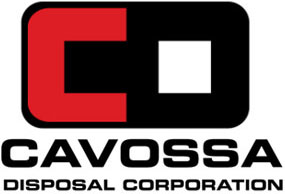Excavation FAQs
What is a septic system?
A septic system is an on-site recycling system which treats wastewater and returns it to the groundwater.
Why are septic systems the choice for homeowners on the Cape?
Due to a lack of public sewer for all Cape landowners it is imperative that wastewater be treated at the source. Immediate treatment prevents contamination of local water sources and coastal waterways.
What is Title 5?
Click on this link to learn about the MA DEP regulation
Who constructs the septic system and who is responsible for approving it?
An excavating contractor, like Cavossa Excavating, will install the system to the specifications set by the engineer. The local Board of Health will approve the installation.
How can you tell if your septic system is failing?
Septic systems generally give little warning they are about to fail. However, the following symptoms often indicate the leaching system is becoming clogged: a) Sewage odor near the septic tank or leaching field, b) slowly running drains and toilets, and c) sewage on the ground over the leaching field.
If my septic system fails or needs repairs, what should I do?
You should call Cavossa Excavating at 1-508-563-5530. We will be glad to help you.
How often should I pump my septic tank?
At least once every three years.
Do I need to use any septic system additives to enhance performance?
No. There is no scientific evidence that yeasts, bacteria, enzymes, or chemical additives are effective for routine maintenance or as a remedy for septic system problems. Additives are not an alternative to proper maintenance and do not eliminate the need for routine pumping of your septic tank.
How is the septic system maintained for optimum operating efficiency?
Here are some good techniques to maintaining your system. Call a septic system pumper to inspect your system at least once every three years and pump as needed. Periodic pumping of the septic tank is far less costly than repair or replacement of the system. Protect the system by keeping soil over the leaching field and cover with vegetation to prevent erosion. Don’t drive heavy vehicles over the system. Avoid construction over the system. Maintain the natural shape of the land immediately down slope of the system and protect this area from cutting and filling. Landscape the yard to divert surface waters away from the tank and leaching field. Be sure that water from the roof gutters and foundation drains do not flow over or into the system.
How do you find the septic tank on a property lot?
When the system is completed and approved an “As-Built” is filed with the local Board of Health. This is a map of the system in relation to the property lines and building foundation. This map will provide the location of your system.
Who regulates a septic system?
The Massachusetts Department of Environmental Protection sets guidelines for installation and efficiency. Local Boards of Health handle the permitting and issuance of the Certificate of Compliance.
Should you keep a record of your septic system maintenance?
Yes, most definitely. It is not only important for you as the current user of the system but, is helpful to show potential buyers at time of property sale.
What does a septic system cost?
A system’s cost is relative to the quantity of bedrooms in the attached residence and any particular local environmental regulations. Give us a call and we will gladly provide a quotation tailored to your specific requirements. Click here to contact us
How do I get a quote from Cavossa Excavating regarding my project needs?
Call our Estimator, Shay Perry, at 1-508-563-5530 or email him at Shay.Perry@cavossa.com. Shay will introduce you to our excavating contractor services and set up a site visit to evaluate your project needs. We proudly service our Massachusetts ( MA ) customers on the Cape and surrounding areas. Have a great day!!
